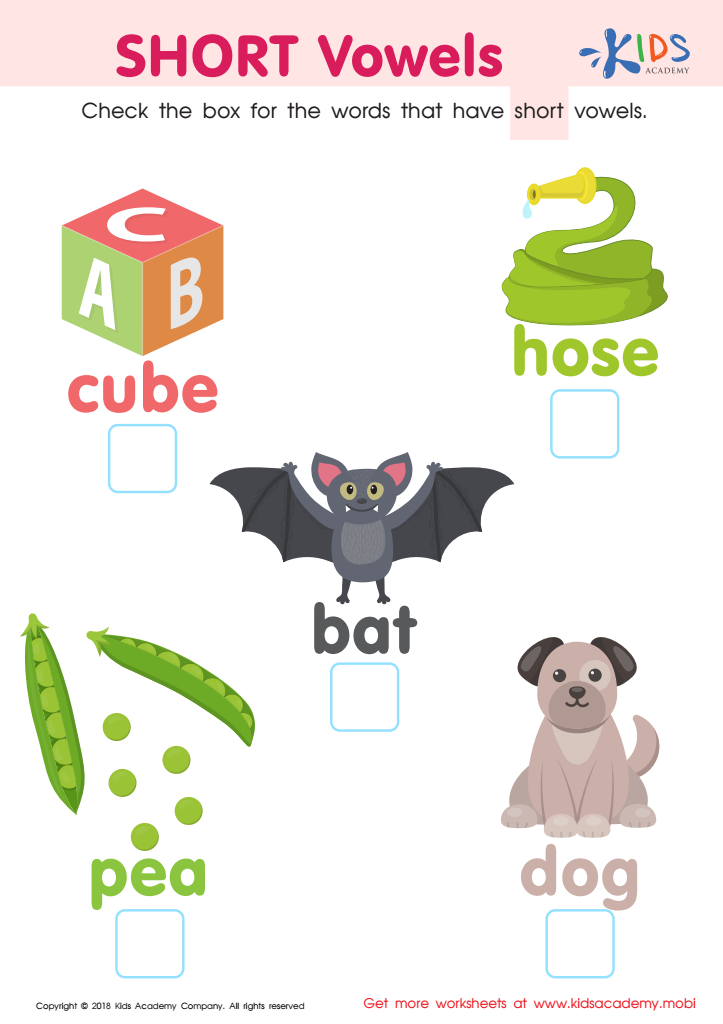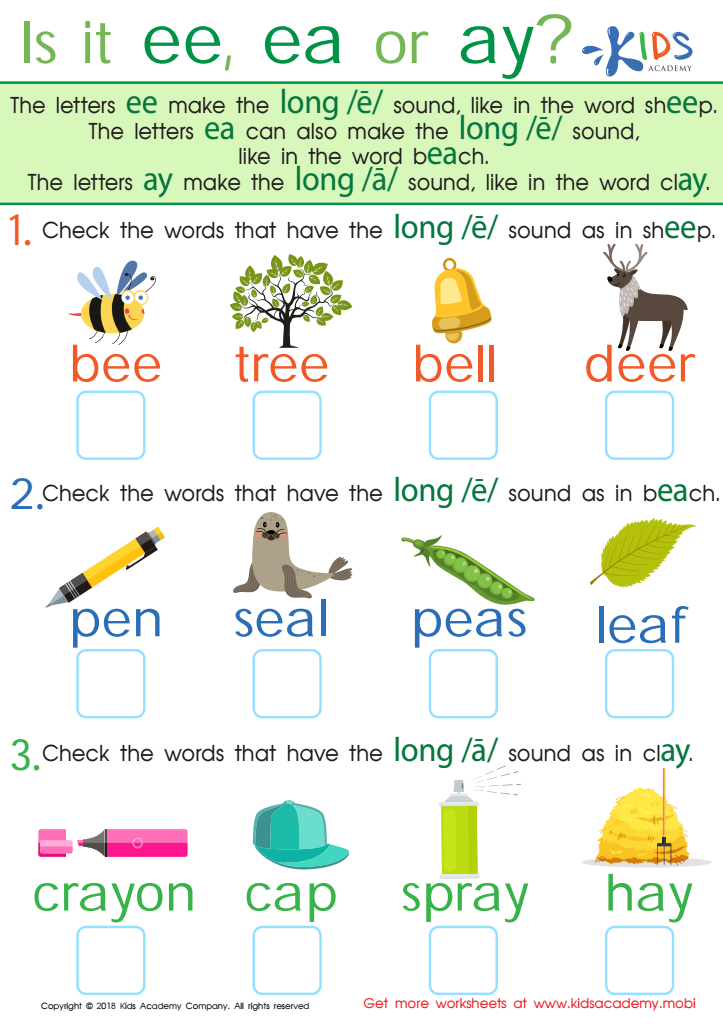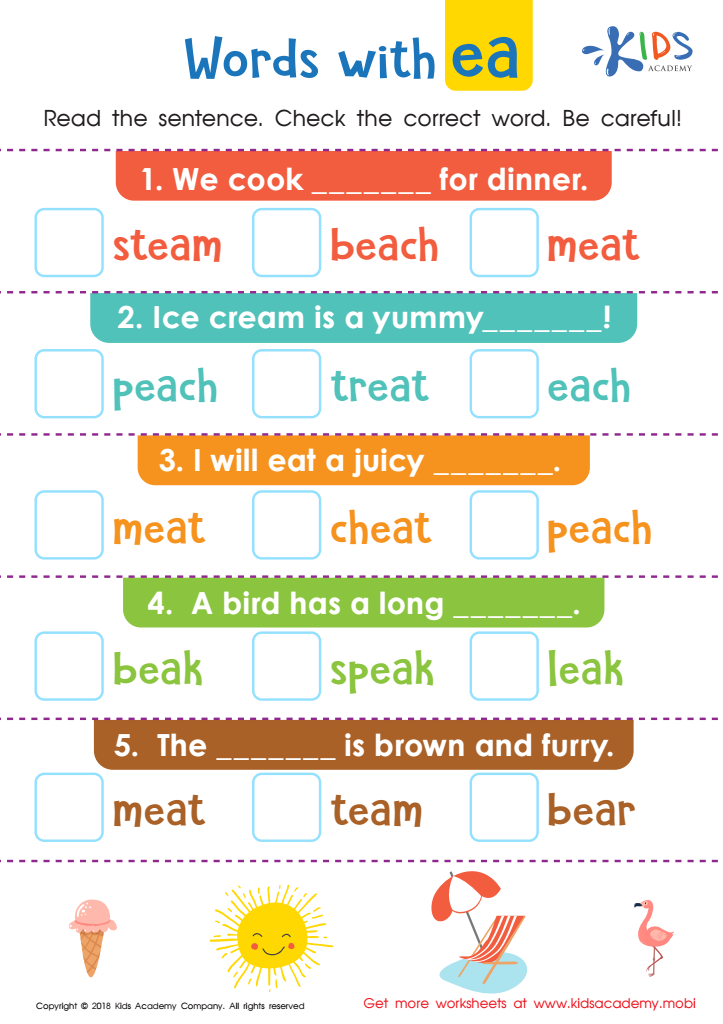Spelling Skills Normal Vowels Worksheets for Ages 3-8
3 filtered results
-
From - To
Enhance your child's spelling abilities with our comprehensive "Spelling Skills Normal Vowels Worksheets" designed for ages 3-8. These engaging worksheets provide young learners with interactive activities that focus on recognizing, writing, and pronouncing normal vowels. With a variety of exercises, children will build their vocabulary while developing essential early literacy skills. Each worksheet is tailored to different learning levels, ensuring that every child can progress at their own pace. Perfect for use at home or in the classroom, these resources make learning fun and effective. Foster a love for spelling and reading in your child today!


short vowels Worksheet


Is It EE, EA, or AY? Worksheet


Words with ea Worksheet
Parents and teachers should prioritize Spelling Skills, particularly with normal vowels, for children ages 3-8 because strong spelling foundations significantly contribute to literacy development. At this age, children are acquiring essential language skills, and understanding vowels is crucial for decoding and encoding words. Vowels are the building blocks of language; they form the heart of most words, making it vital for kids to recognize and understand their sounds.
Effective spelling skills promote reading fluency and comprehension, as children who can spell well are more likely to decode words accurately when reading. Additionally, these skills enhance writing abilities, allowing kids to express themselves more confidently and clearly. Early mastery of spelling normal vowels aids in developing phonemic awareness—an important predictor of future reading success.
Moreover, consistent practice with spelling can boost a child's self-esteem and motivation. As they see improvement in their spelling skills, they gain confidence in their academic abilities. For teachers and parents, fostering these skills means providing children with a critical resource that will serve them throughout their educational journey, laying the groundwork for proficient reading, writing, and overall literacy. Ultimately, encouraging mastery of spelling normal vowels is an investment in children's lifelong learning and communication skills.
 Assign to My Students
Assign to My Students










